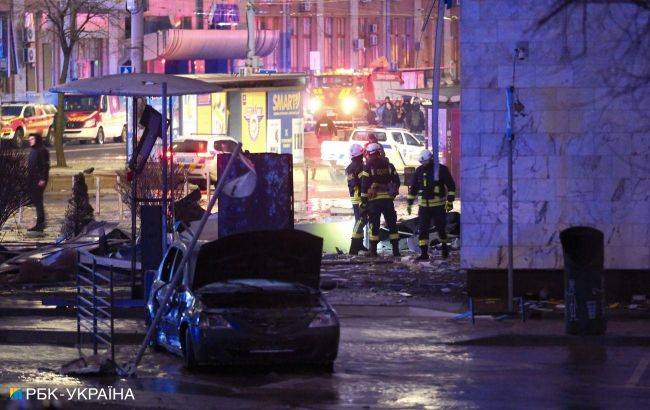Ukrainian Air Force explained why missile intercepts caused major destruction in Kyiv
 Photo: the Air Force explained why there is serious destruction in Kyiv after the missiles were shot down (Vitalii Nosach, RBC-Ukraine)
Photo: the Air Force explained why there is serious destruction in Kyiv after the missiles were shot down (Vitalii Nosach, RBC-Ukraine)
Despite the interception of ballistic missiles during the Russian attack on January 18, there are serious damages in Kyiv. Yuriy Ihnat, the head of the Communications Department of the Air Force Command has provided an exclusive comment and explained why this occurred.
"Ballistic missiles are extremely difficult targets to intercept. Both missiles that attacked Kyiv were shot down," he said.
According to Ihnat, one of the missiles was intercepted at a low altitude, so there may be consequences from the shockwave during the missile's impact.
Details of the Iskander-M interception
The military official added that despite the interception, fragments of the downed missiles do not vanish in the air — they will inevitably fall to the ground.
"And, unfortunately, they can also cause serious consequences on the ground, as the missile's warhead may detonate after being shot down. This can happen," emphasized the Air Force representative.
Therefore, Ihnat noted, it is important to follow safety precautions.
Russian attack on Kyiv
On the morning of January 18, Russia launched a ballistic missile attack on Kyiv. The attack caused fires and fatalities. In particular, the Lukianivka area in the capital was severely affected, with damage to pipelines, buildings, and vehicles, as well as water supply issues.
Additionally, three people were injured due to the Russian attack on Kyiv. The casualty numbers are currently inconsistent. Rescue services report three deaths, while the Kyiv City Military Administration (KМВА) reports four.
For more details on the aftermath of the Russian attack on Kyiv on January 18, read the full report from RBC-Ukraine.

